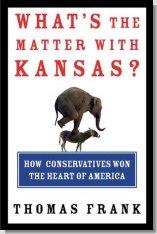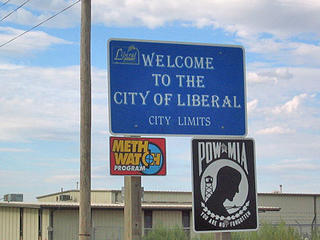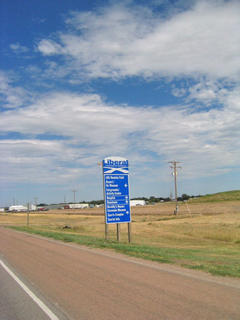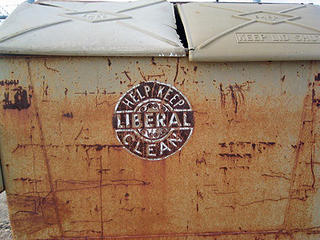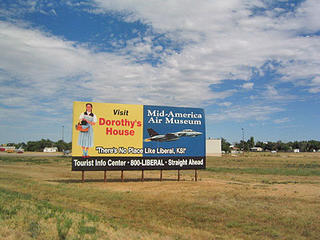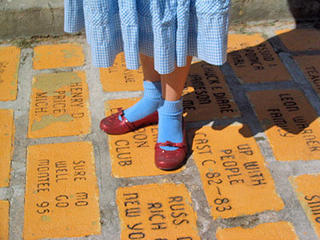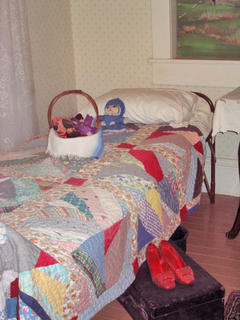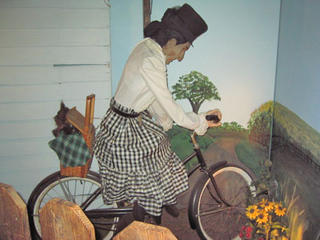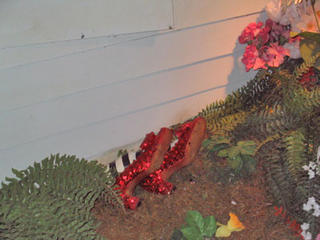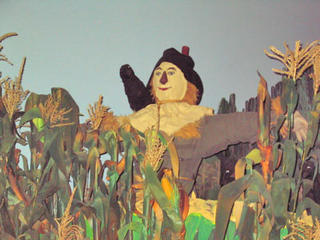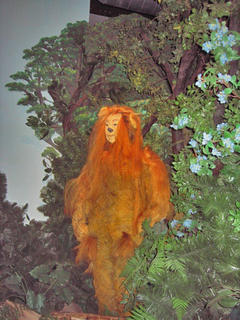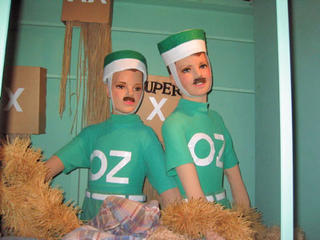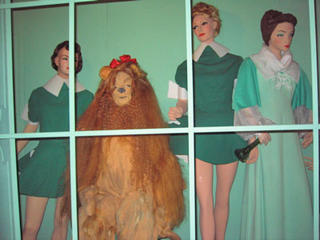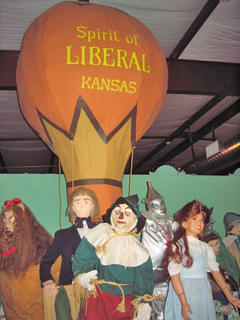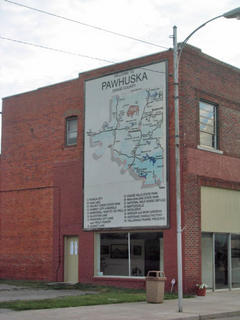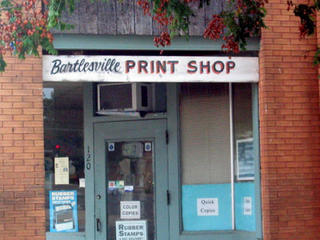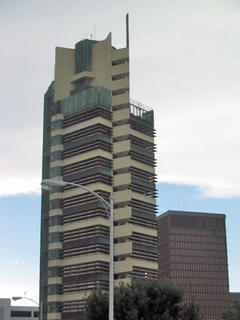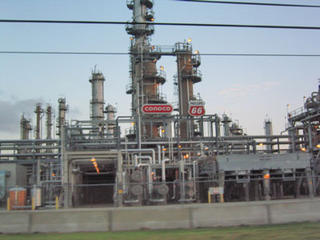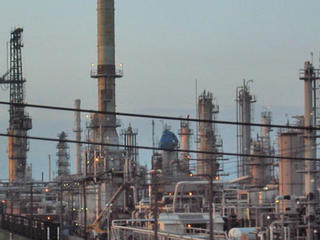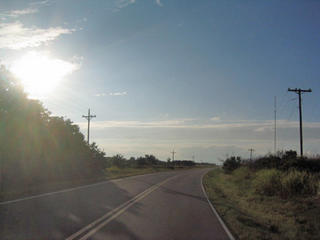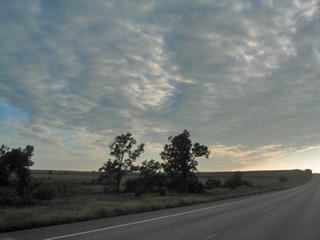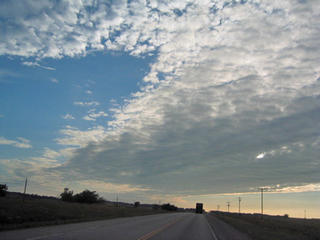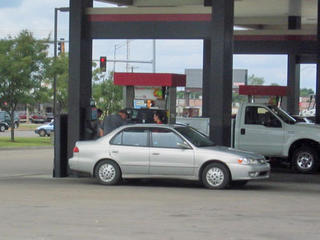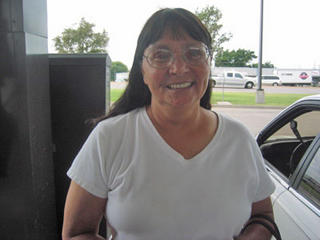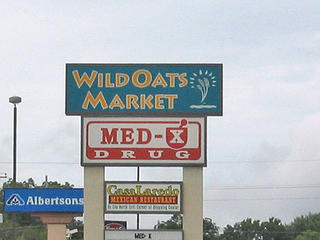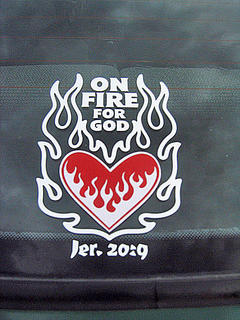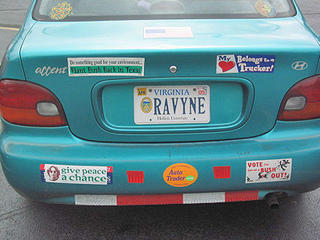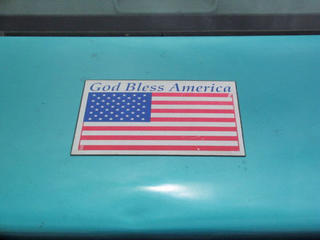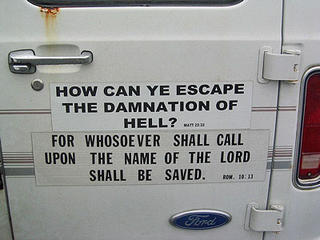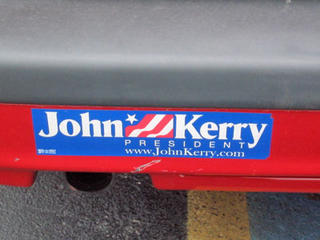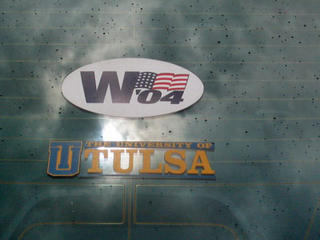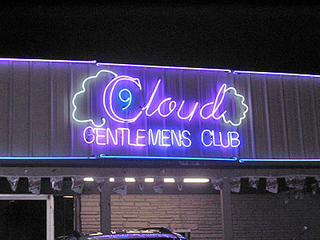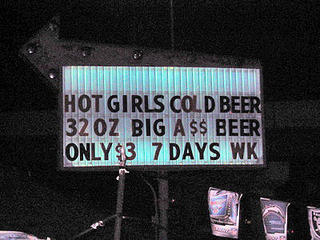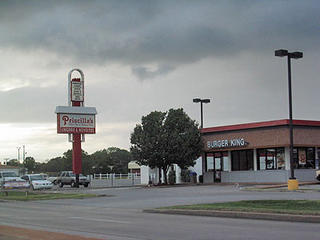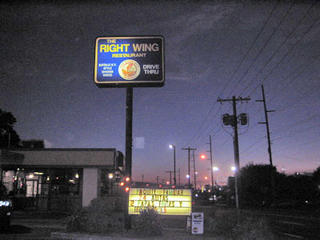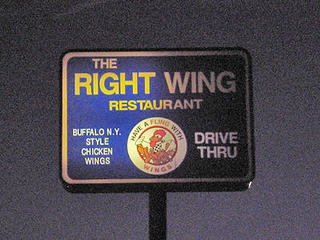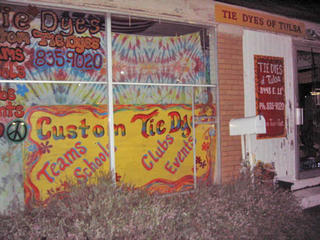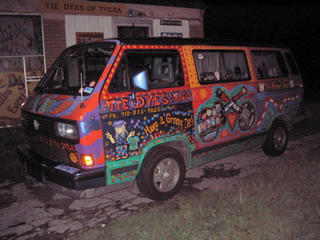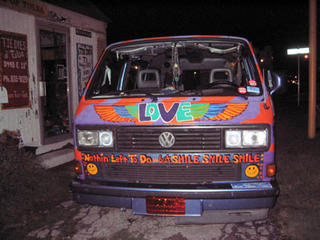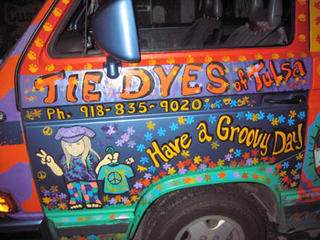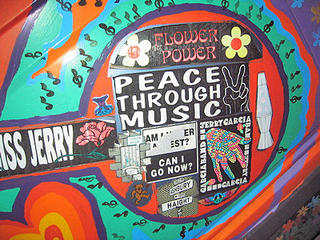For the first time in weeks, we were able to enjoy falafel, hummus and baklava for lunch. To our right was an Israeli family also enjoying the delicious afternoon buffet. After they left, a few locals and a group of Saudi men attending college nearby stopped by for a late lunch. They were followed by three men from India who recently arrived to work for Sprint. The owner of the restaurant, who does a good job of appealing to a wide array of customers, is originally from Morocco and a recent naturalized US citizen. The restaurant itself is adorned with several photos of Greece, Arabic writings and a large Moroccan flag. Aside from a late arrival the previous evening, this was our first experience of Overland Park, Kansas.
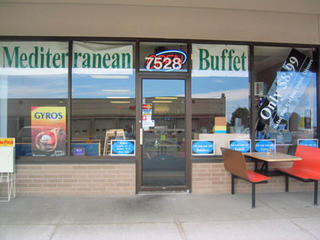
Here are excerpts from my interview with Mustapha Alhiane, 30, owner of the Marrakesh Cafe.
How long have you been in the states? Since '99. I moved to Kansas in 2000. It's a little close minded. I'm used to big cities like Paris, Nice, Casablanca and Morocco.
Why did you choose Overland Park, Kansas?I have a friend here.
What's the community like here? Do you feel like you're part of it?Overland Park is a large community of Jewish people. There are professional Muslims, too. Lots of doctors and engineers. There are South Asian families, like Pakistani and Indian families. A few Arabs are here.
So it's pretty mixed. Do those different groups interact?No, but the people who come here are open minded. Somebody who comes to eat your food, you can say they like you. The Jewish families that were here come often. I play Hebrew music when they come in.
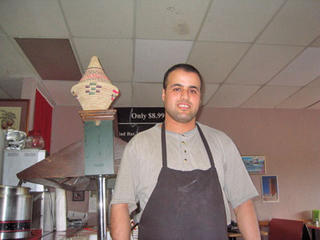 Do you hear opinions about the war from your customers?
Do you hear opinions about the war from your customers?I get questions sometimes. They are asking from their heart.
What kinds of questions?The majority of the American people here don't know what's going on outside and they're very close minded. If you ask them, 'What is the difference between Morocco and some other country?' They don't know where Morocco is. Even when somebody hears I'm from North Africa, they are surprised. Oh, North Africa and you are Arab? Or, North Africa and you are Muslim?
Some Americans learn about other countries when we're at war. It's sad. Today, the total number of soldiers that have died in Iraq is over 1800. For no reason. What do we get from this war? High price in gas? When I came here, it was 96 cents. Today it's $2.56.
How do you feel about the war?It's very sad. I think they [the US government] hide a lot of stuff. They're paying a big price for it, but the money is just money. Eighteen hundred Americans died. More than 60,000 innocent Iraqi people died. What do we get? Saddam is in jail. If you want to get rid of him, we could do it without all this stuff. We can pay big money and take care of him, but we were never honest about it. What we want is to control the area.
When you say "we," you're talking about America.I am an American citizen. I passed my test for citizenship and hopefully I will get it real soon.
How do you feel about that?I'm proud of it. If we talk about democracy and justice, we need to be honest about it, not just lies. American people, I don't think they get the point yet about it. Overseas, most of the people understand Bush is not honest about the change in the world. All he wants is control. It's not for justice or democracy. In South America, they are suffering and they would cost America less than what Iraq and Afghanistan are costing. Most of the people there are suffering. Most of the people there make less than $500 a year. If you want to bring something good, think about our neighbors.
What is the citizenship process like?Every person who moves to the states for five years has the right to be a citizen.
So you became a citizen last year?That's right. My test was in July 2004.
What's the test about?A few questions. Actually, they are stupid questions. They ask me, 'What is the color of the flag?' And the flag was behind the office door and you could look at it. (laughs)
What else did they ask?The second question they asked was, 'Who is the Vice President?' The third was, 'What are the two major parties in the states?' And they asked me to write the name of President George Bush and the United States.
You had to write down Bush's name?Yeah.
And that's it?That's it. it's very easy.
When you were living in Morocco, did you follow American politics?Yeah, that's the difference between here and there. Right now, the people in what they call the third world, are more informed than American people because they have satellites, they have free dishes where they can get news and they have nothing to do. They are not very busy.
They don't have strip malls to go shopping like you do here.Yeah, and they're not working three jobs for the system. People here work two jobs, three jobs. They don't have time to watch news.
If you went there to ask a [Moroccan] high school student about the map of America, he can name all the states and the capital of the state. I knew a lot about the states before I came here.
Since you moved here right before 9/11, did you feel a backlash at all?I remember it was a Tuesday and I used to have a store in Missouri. I was just opening. It was 8:30. A lady across the street from me was knocking on my door. She said, 'You did it.' And I said, 'What happened?' And she said, 'The Twin Towers. They are gone and Osama bin Laden hit them.' What's this about me? 'You did it. You are the same.' I mean she's a friend. It was a joke and serious. The same day I had a visit from the FBI, the CIA and another agent. They are three agents. They gave me their card. They asked me some questions. If I heard anything or know people talking about it. Actually they did that with all the Muslim and Arab stores in the area.
How did you feel about that?I think it's normal. Everybody was shocked.
When I do interviews, a lot of people are confused. In one breath, they say we're freeing the Iraqi people from the horrible dictator Saddam Hussein. When we further the conversation, they say the Iraqis were involved in 9/11 and we need to kill them.Who are we? This is the point. How can America be the police of this world? We have a lot of problems here. If you want reality, just go to Prospect, just a few miles from here and you can see African American people. Very poor people. They have nothing. They are living on welfare. Why are you spending billions and billions of dollars for nothing and our people here are suffering? It's not just African American people. There are a lot of poor people. Even the white people.
Did the high level of poverty surprise you when you first moved to America? America, to the outside world, is all about the brands and the movies, but people don't think about poverty when they think about America.Personally, no, because I tried to know a lot about here before I came here. I knew there were a lot of problems here before I came here, but most of the people, yes, they get a big picture of America, but when they come here, they will see the reality. It's totally different. Sometimes people don't have enough to eat. I just read that more than 50 percent of American people, if the economy stays as it is, they will go bankrupt because they can't afford to pay their credit cards and their bills. Everybody is in debt.
Does that surprise you?The system is not honest. You cannot see the justice. I can see huge problems in the system.
What does this country mean to you as a new citizen?There's a lot of opportunity. The people, in the beginning, you can see are a little afraid. But when you try to talk to them nicely and explain the reality, they are very good listeners. Even the Kansas people, which are the hardest ones. When you talk to them and make the point, they are not stupid people. When I talk, it's just one opinion. They have opinions. Listening is a good start. It's a very good start and after that we can be friends.
Are you looking forward to voting in the next election?I will vote. I can tell you that in reality, the two parties have the same project, especially in foreign affairs. There's not that much difference.
What will determine the way you vote?The important things. Justice. If we want justice, we need to do it for everybody. We don't judge people about what they believe. Look at the money we spend on Israel from our taxes. We can rebuild Africa with it. Why are we spending it on a corner of land? It's a holy land for three different religions and I do respect that, but it's too much. How can you kick more than four million people from their land and bring other people from Europe, from America, from everywhere and tell them, 'This is the land of your grandfather.' And even they can get a passport. And this is the problem of England and America. Just two countries. I'm surprised to see that in the news yesterday when they said people were crying. 8,500 people getting out from Gaza are crying because they leave their land. Give me a break. I mean they give these people houses, they give them money and they move them from Gaza to a new house. How is that for the four million they kicked out and gave them nothing. All they gave them was the gun behind their head.
We should think about that. Where's the justice? When we have that justice in our politics, then we can say we are trying to bring freedom to everybody and everybody will listen. The first who will listen and help are Muslims because it's part of the religion. To work for justice.
Many of the people I've interviewed have strong opinions about Islam, but don't know many Muslims. This is another mistake, as a Muslim, in our community. We need to talk to the people. We have nothing to be afraid of. We are already suspect. We should open our hearts to people and talk to them.


